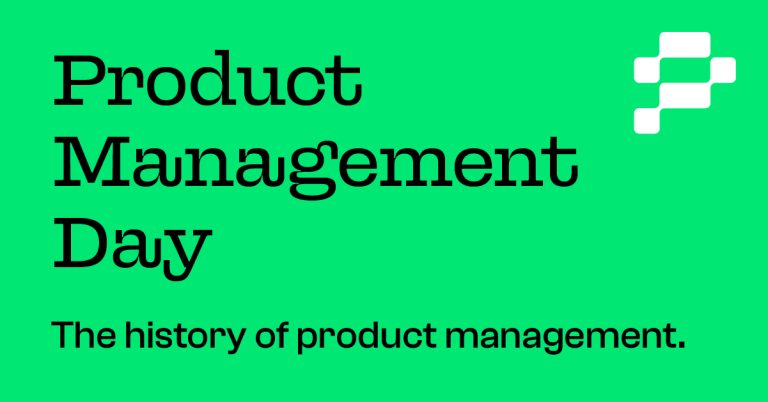
Recently, we presented the co-hosted AIPMM webinar, Get Hired: Interview Like a Pro for a Product Manager Job (Remotely!). You can view the accompanying blog post to download the Product Manager Interview: How to Get Hired Planner and Workbook. We received so many great questions on the topic and have included answers to the top questions down below. Thank you all for engaging in our webinar!
These questions were answered by Kenny Kranseler and Roger Snyder.
Lateral Transitions
Question: Can you share some strategies for lateral transitions (when interviewing)…e.g. moving from Engineering to Product Management?
Answer: Moving laterally into a Product Manager position from an existing role at a company is one of the best ways to break into the profession. You’ve already established yourself as a great employee and know the culture of the company. It’s crucial to get the support of your existing manager, so be sure to discuss your career move with them and get their help to promote your strengths to the PM interview team.
But you also need to be aware of the biases the interviewer may have about your strengths and weaknesses, based on your previous roles and experiences. For example, if you’re coming from Engineering, they’ll likely assume you have a deep technical grasp of the products, but may not understand how to research customer needs, or know the business, pricing, or other financial aspects of the product.
So, it’s important for you to leverage answers in your interview to address any assumed “holes” in your experiences. As an engineer, can you point out times where you worked on understanding customer needs through work with a Design team? Or, relate your work on a reporting module to understanding basic business metrics of success? Think about how you can apply your work experiences to the key PM responsibilities defined in the link above, and you’ll be better able to change the interviewer’s biases.

Estimation Questions
Question: I’m mortified of the estimation interview question mentioned during the webinar. As a PM, I’m very comfortable with numbers. I can use a spreadsheet to do top-down/bottoms up forecasting, no problem. But working out numbers on the fly and reconcile from there is NOT my strength. How do I handle this in the interview? In my 12+ years of PM experience, being able to work numbers on the fly doesn’t seem that important. Am I wrong?
Answer: Even if you are comfortable with numbers and adept at creating spreadsheets, there is an additional skill that interviewers are looking for in a Product Manager: can you break down a large, difficult problem into smaller parts, and come up with an approach to solve it? The question isn’t about the numbers – it’s about seeing how you think. It also tests your ability to think on the fly – to quickly adjust based on new information and inputs. Many times, as a Product Manager, you will be faced with a situation where your careful analysis has assumptions that become challenged by a change in market conditions.
The good news is that if you are comfortable with numbers, these questions are not all that difficult, though it may take patience and practice. The key is to take time and ask the interviewer questions to make sure that you understand what is being requested. Break down the question into component parts that can easily be evaluated to get to an estimate of an answer. Free yourself from thinking that you have to get to a precise answer and get comfortable with making rough assumptions that enable you to simplify the problem. Remember to use round number estimates to make your calculations simpler.
This kind of question is not about getting to the right answer. It’s about showing how you would get to a right answer based on critical thinking and assumptions.
Product Launches
Question: I work in the medical device market, where our products take years to reach market. How should I respond to the expectation that I’ve launched many products in the past? How should I answer when asked to talk about the performance of my product, when it hasn’t even launched yet?
Answer: Some Product Managers work on products that have short life cycles and others that have longer cycles. Just because you work on a product with a longer cycle does not mean that you cannot transition to one with a shorter cycle or vice versa.
If you are working on a product with a longer cycle and have yet to introduce it to the market yet – as it might be a multi-year initiative with many components – you can still demonstrate that you have the capabilities needed to manage and measure a launched product.
When an interviewer asks questions about launch and the performance of the product after launch, they are likely trying to assess if you have the skills to understand feedback and metrics and adjust product plans to react to that analysis. Can you relate the work you’re doing on a long life cycle product to these situations? Point to examples where components of your product or even the product concept has been exposed to the market, what feedback you gathered, and how you adjusted your product plans in response to that feedback.
Think of this journey as actually a series of product launches. This should address the underlying question of the interviewer – can you adjust your product plans in reaction to what you learn in the market.

Career Missteps or Failures
Question: When asked to talk about a failure in my career, would talking about a too real failure come off as negative?
Answer: This is a mistake that many interviewees make – they assume that the interviewer does not want a real failure and/or weakness and come up with one that shows them in a positive light, even if exemplifying a negative. If the interviewer asks this type of question, they are looking for two things from you: 1) humility and 2) the ability to adjust and learn based on experience. If you merely answer with a weakness/failure that is not “too” bad, you are addressing neither of these.
Do not be afraid to point to a real failure or real weakness that you have. The key is to point to what you learned from the failure and changes that you have made to address the weakness. You get extra points if you can show you were able to succeed the next time you were faced with a similar situation, using what you have learned.
Note: If you need help figuring which of your Product Management skills could use improvement, check out our free Product Manager Skills Assessment. After the assessment, you will receive a personal report that analyzes your strengths and weaknesses. It will also give you tips on how to leverage and up-level these in your career.
Role Clarity
Question: Any recommendations on helping people understand the differences between PM and PMMs?
Answer: Product Management (PM) and Product Marketing Management (PMM) are complementary roles. In some companies, different people occupy these roles. In others, the same person fills both. Regardless, both roles are essential to product success.
At a high level, what’s the difference between the two roles? It is often said that a Product Manager has a more inbound focus, while a Product Marketing Manager has a more outbound focus. While there is some truth to this, it still doesn’t explain the core purpose of each role, and how they are different. At Productside, we like to put it this way:
- The Product Manager is responsible for putting the right product on the shelf.
- The Product Marketing Manager is responsible for successfully getting the product off the shelf.
To find out more, check out our in-depth blog post, Product Manager vs Product Marketing Manager, to learn about the differences between PMs and PMMs.
Your Elevator Pitch
Question: How can I best condense 20 years of experience in a two-minute pitch? I don’t think my pitch is working because I’m not getting past the first or second round of interviews.
Answer: There are a couple of things to realize if you have extensive experience – either directly in Product Management or in other roles. First, you cannot provide detail on everything you have done in your career. Instead, focus on those experiences that are most relevant to the current job opening. Do this by doing your research on the role, the company, and its current market situation. What three stories from your experience can you share to show you are the best person for their job opening?
Secondly, compress your early experiences into single lines on your resume. I have 30 years of professional experience, yet my resume still fits on a single (yes, double-sided) sheet of paper. In all likelihood, the most interesting and relevant experience for the opportunity you are interviewing for are from your most recent experience and accomplishments, so emphasize those on your resume and in your interviewing. If you are a member of AIPMM (included with our training courses), take advantage of the Resume Review session to help give you that edge.
Job Titles
Question: In your experience, do hiring managers or recruiters tend to filter out those who do not have “Product Manager” in their current title?
Answer: The good and the bad about Product Management is that titles are not consistent across companies, and often even within companies. For your specific situation this is clearly a benefit. Hiring managers likely know that there is not a universal definition of what a Product Manager is and that will vary across companies. They often ignore specific titles and look more at responsibilities and accomplishments in evaluating potential candidates for a Product Manager position. What that means for the candidate is that they need to understand what some of the key requirements are for a Product Manager position and how to position the experiences you list on your resume and cover letter (as well as the responses in your interview) to those requirements. Read up on our Product Manager interview blog to get insights on this.
That also means that you should filter your search of Product Management positions to those that meet your interests and your background. Just as there is confusion on what is or is not a Product Management position in your background, there is not consistency in the postings that you might see. Make sure that you are not wasting your valuable time applying to positions that you may have little or no interest in just because the listed title is “Product Manager.”

Right and Wrong Answers
Question: If there is “no right/perfect PM answer,” how do you know what made you fail in the interview?
Answer: While there is no “perfect PM,” there may be right and wrong answers in a Product Manager interview. You will rarely get specific feedback from an interviewer on how well you performed in your interview, beyond whether or not you make it to the next round. If you didn’t make it to the next round, send a simple email to the HR manager or hiring manager and ask for feedback that you can leverage for future interviews and opportunities.
Practice makes perfect. Leverage your network to find connections who have experience hiring Product Managers and ask them for a mock interview. Then, ask for honest feedback and tips to help you improve for the future. This is a great, low-risk way to improve your approach to interviews.
Importance of Certification
Question: How important is it for a PM to have a Scrum certification? As a UX Designer, I was part of many Agile/Scrum projects, wrote user stories, and prioritized features.
Answer: The importance of specific Scrum certification will depend on the requirements of the PM role that you are interviewing for. If the PM role includes the responsibilities of a Product Owner, then this could be crucial in helping you get hired. If the PM role is more market-facing and strategy, or marketing oriented, then Scrum certification would be less crucial.
However, you should note that any certification can help you stand out from the crowd and could be of potential value in getting hired. Taking courses like Productside’s Optimal Product Management and Product Marketing, Digital Product Management, AI Innovation for Product Managers, or Agile for Product Managers & Product Owners with their respective AIPMM Certifications can clearly add to your knowledge and credentials, and demonstrate a commitment to advancing in your career through formal training. Over the years, we’ve heard from many recruiters and hiring managers that they love to see candidates who demonstrate learning beyond on-the-job and have the drive to keep learning more.
Stand Out From the Crowd
The most important takeaway about interviewing for a Product Manager role, be it in-person or remote, is to be prepared. Make sure you research the company, rehearse your answers, including working with others in a mock interview setting and practice responding in a “meeting platform” if your interview is going to be remote. One valuable resource to help you in this preparation is Productside’s free Product Manager Interview: How To Get Hired Planner and Workbook. This is a great start to enabling you to succeed in that interview and reach your goal – landing that next Product Management role!
If you would like to be notified when our clients post new job opportunities, sign up for our Jobs List here.
To see some examples of interview questions from PM executives, check out our blog post on 10 Revealing Interview Questions from Product Management Executives.
Download the Product Manager Interview Planner and Workbook


